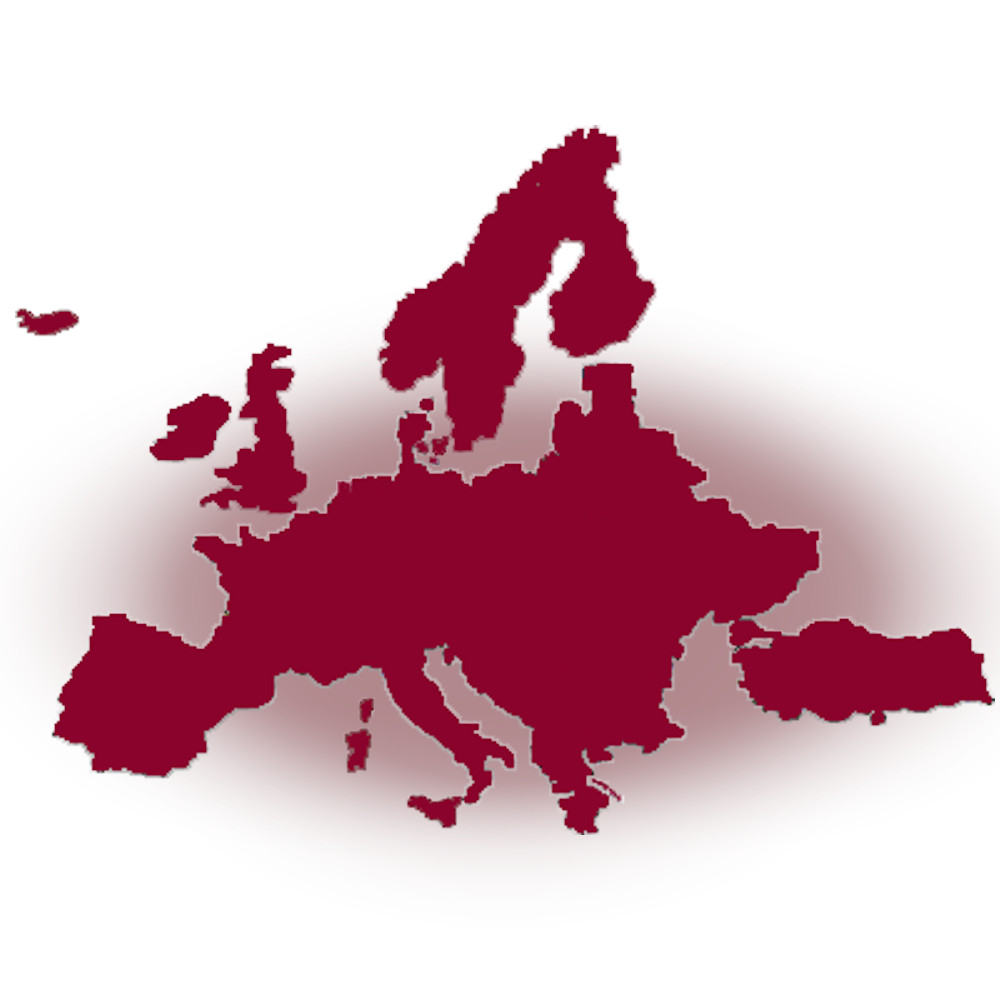Distillates in Europe
Everyone has heard of Cognac or, even more so, Whisky.
Learning to recognise a distillate means knowing from what raw material it is obtained and, above, where it is produced.
Europe has made distillation its pride and joy: in many Countries it is possible to find one or several national distillates, with famous names that evoke a past rich in legends.
Learning to recognise a distillate means knowing from what raw material it is obtained and, above, where it is produced.
Europe has made distillation its pride and joy: in many Countries it is possible to find one or several national distillates, with famous names that evoke a past rich in legends.
One must always remember that the term aqua-vitae (or brandy) is synonymous with distillate. It will have a specific name, depending on the raw material used to make it and its production area.
The Distilling Heritage of France
If, in Italy, marc brandy is called Grappa, in France it is called Marc: famous exponents are Marc de Champagne or that of Alsace.
Famous Cognac is a distillate of wine, produced in France, 130 km north of Bordeaux between the areas of Charente and Charente Marittime. The vine species used to make the wine intended for distillation is mainly Ugnì Blanc, equivalent to the Italian Trebbiano.
Armagnac is perhaps France’s oldest distillate. It is produced in Gascony, the famous land of d’Artagnan and The Three Musketeers, 150 km south of Bordeaux. The vine species mainly used are Ugnì Blanc, Bacco, Folle Blanche and Colombard. All the other wine distillates produced outside the regions of Cognac and Armagnac must by law be called Brandy, whether they are produced in France or in the rest of Europe.
France has another famous distillate: Calvados. Produced in Normandy, it is obtained from apples that are pressed and then fermented to obtain a cider. This cider is then distilled according to an old Normandy tradition.
Northern Europe and German and Balkan Distilled Spirits
In Scotland and Ireland one will find the most famous grain distillate: Whisky. Barley, peat, and pure water poor in minerals create an admirable combination of unmistakable notes.
Vodka is obtained from cereals such as rye and wheat, whereas tubers such as potatoes are partly used. Poland and Russia are the two countries claiming its paternity. In their languages the word Vodka means voda, i.e. water.
Gin, of Dutch origin but now linked to English distilleries, is a grain distillate, even if it is flavoured with juniper berries, cardamom, coriander, orange peel and many other ingredients, depending on the producer. Not only drunk neat, it is often used in cocktails, like Vodka.
Lastly, Austria and Germany boast a big tradition in distilling fruit: apples, raspberries, pears, plums, apricots, cherries, etc. Also Croatia and Slovenia distil plums to make Slivowitz.
European distillates and raw material
Discover the raw materials used in Europe to prepare distilled beverages.
The following banner illustrates the layering of ingredients that contribute to the unique flavors of these distillates.
Discover the raw materials used in Europe to prepare distilled beverages.
The following banner illustrates the layering of ingredients that contribute to the unique flavors of these distillates.



